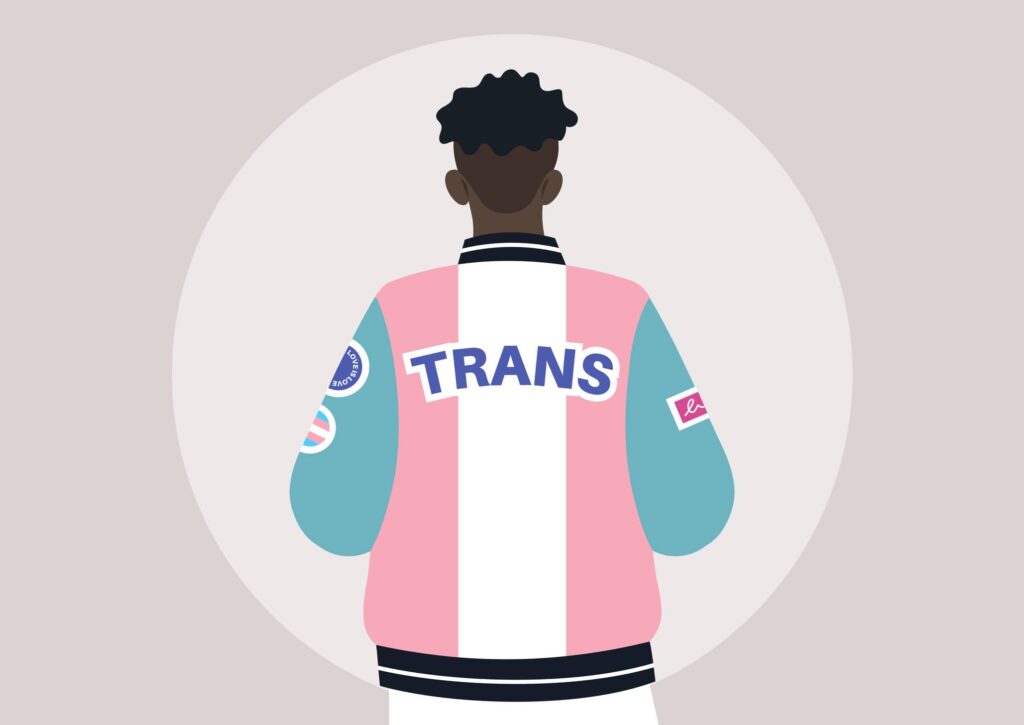The Role of Therapy in Supporting Trans Teens and Their Parents

Therapy plays a crucial role in helping trans teens navigate their gender identity, but parents of transgender teens often need support too! Parents of transgender teenagers are tasked with both supporting their teen, while also potentially navigating their own internalized beliefs about gender identity and re-envisioning outdated ideas about their child – making therapy a vital resource for both teens and their families.
Do you find yourself confused about how to support your child? Wonder if your child can live the life you dreamed for them before coming out?
In neighborhoods like Lakeview, home to Chicago’s LGBTQ+ and queer community and the famous Boystown district, families have access to more progressive resources. However, even in these more open environments, families may struggle with the emotional weight of a teen’s transition.
This is where therapy, especially gender-affirming therapy, becomes essential – not just for the trans teen but also for parents who may experience their own feelings of grief, confusion, and concern for their child’s future.
Understanding the Journey of a Transgender Teen
Being a transgender teen means grappling with a unique set of challenges that most of their peers may not face. In Chicago, approximately 1.8% of high school students identify as transgender, according to a report from the Chicago Public Schools (a figure that likely underreports the number of teens that are trans in Chicago).
For these teens, gender identity development is a journey of self-discovery and transformation, but it can also be filled with uncertainty, fear, and sometimes isolation. LGBT therapy, specifically transgender teen therapy, provides a vital space to explore identity, address their mental health, and feel safe in development.
The Emotional Challenges Transgender Teens Face
Trans teens often face bullying, stigma, and rejection from peers, strangers, or even family members. These challenges can lead to depression, anxiety, or a sense of alienation. When teens feel misunderstood or unsupported, it can worsen feelings of dysphoria, which therapy can help alleviate.
Identity and Transition: A Complex Process
The process of transitioning, whether socially, medically, or emotionally, is different for everyone. Therapy helps transgender teens navigate questions about their identity, whether it’s deciding on name changes, hormone therapy, or simply expressing their gender. For some teens, it’s about embracing who they are, while for others, it’s a slower journey toward self-acceptance.
Why Parents Need Support Too
While the focus is often on the trans teen, parents play a significant role in their child’s success. It’s not uncommon for parents to feel a sense of loss or fear when their child comes out as transgender. Therapy and support for parents of transgender youth is essential for their own mental health and, in turn, helps them become the supportive, loving parents their child needs.
The Emotional Impact on Parents
When a teen reveals they are transgender, many parents experience a whirlwind of emotions. Fear, confusion, grief, and even guilt are common responses. Parents often worry about their child’s safety, their future, and whether they have failed as a parents.
It’s also common to have many questions. Parents might wonder if this is a phase, whether they caused it, or if their child is making the right decision. It’s also natural for parents to grieve the loss of the identity they once associated with their child.
This grief can feel like a mourning process for the dreams they had for their child. In therapy, parents can work through these feelings and begin to embrace their child’s true self, which can strengthen their bond and support the family’s mental health.
Therapy for Parents of Transgender Teens
Transgender teen therapy isn’t just for transgender teenagers; it’s also crucial for their parents. Parents often need guidance to cope with their feelings, fears, and questions. It helps them process their emotions, build resilience, and make informed decisions about their child’s transition. A gender therapist can provide the tools and support parents need to move from uncertainty to acceptance.
The Power of Parent-Teen Communication
Open communication is vital between parents and transgender teens. In therapy, parents can learn how to have meaningful conversations with their teens, listen without judgment, and provide the emotional support their child needs. This strengthens the family bond and fosters understanding.
Working with a Gender Therapist
A gender therapist is trained to help both transgender teens and their parents navigate the complex emotions and challenges that come with gender identity exploration. They provide specialized knowledge and a compassionate approach to ensure that both teens and parents feel supported. This environment is free from judgment and filled with affirmation, allowing parents to thrive emotionally and mentally.
Supportive Parenting for Trans Teens Outside of LGBT Therapy
Support for transgender youth means being there for them every step of the way. This involves learning about their experience, validating their feelings, and standing by them as they transition. Parents play a crucial role as a protective factor for the mental health of transgender teens, as parental support has been shown to significantly reduce rates of depression and suicidal ideation.
In fact, a recent study by Simons (2023) found that transgender youth with strong parental support are 45% less likely to experience severe mental health challenges than those without such support. Whether you choose to engage in therapy or not, consider if you could better support your child in any of the following ways:
- Listen without judgment – Create a safe space for your teen to express their feelings and experiences.
- Affirm their identity – Use your teen’s chosen name and pronouns consistently.
- Educate yourself – Learn about gender identity, transgender issues, and the challenges your teen might face.
- Seek out gender-affirming healthcare – Help your teen access supportive medical and mental healthcare professionals. In Chicago, Lurie’s Children’s Hospital’s Gender Development Program and the University of Chicago’s Trans CARE programs are great options!
- Advocate for your teen – Stand up for your teen’s rights in school, healthcare, and social environments.
- Connect with supportive communities – Find local LGBTQ+ groups or online communities for both you and your teen. Check out the PFLAG PTI-Chicago chapter that meets at the Center on Halsted in Lakeview.
- Encourage open communication – Let your teen know that you are always available to talk without judgment.
- Support mental health care – Consider therapy with a gender-affirming therapist for both your teen and yourself.
- Prepare for challenges – Help your teen develop coping strategies for potential discrimination or bullying. Your own LGBT therapist can help you do this!
- Practice self-care – Ensure that you also take time to process your emotions and seek support as needed.
Raising a trans teen is a journey, one filled with challenges and rewards. Transgender teen therapy plays a crucial role in providing support for both teens and their parents. By working together, families can build stronger relationships and help their teens thrive.
If you’re looking for guidance and support in your journey, consider reaching out to our LGBT therapists at Tandem Psychology. Our team of experts is here to help you and your family navigate this path with compassion and care.
This blog is made for informational and educational purposes only. It is not medical advice. The information in this blog is not intended to (1) replace a one-on-one relationship with a qualified licensed health care provider, (2) create or establish a provider-patient relationship, or (3) create a duty for us to follow up with you.



